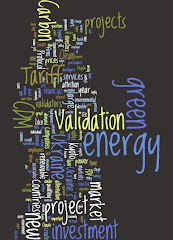Greetings folks -- February 7, 2010 is a very important day in Ukraine, for reasons completely unrelated to the NFL Superbowl. It is the scheduled date for the final runoff Presidential elections! With the election spirit in the air, I thought I would re-post an excellent article from Reuters and the U.S.-Ukraine Business Council.
Here is a brief breakdown and insight into the two principals, may the best candidate win... to be decided in the polls on Sunday and the constitutional courts thereafter, most likely... cheers.
ECONOMIC POLICIES OF UKRAINE'S ELECTION FRONTRUNNERS
IMF, Currency Market, Fiscal Policy, Gas, Energy Security
Sabina Zawadzki, Reuters, Kiev, Ukraine, Mon, Jan 18, 2010
KIEV - Ukrainian opposition leader Viktor Yanukovich and Prime Minister Yulia Tymoshenko will face each other in a run-off presidential election on February 7 and official results from Sunday's first round suggest a close contest ahead.
The election will define how Ukraine, a former Soviet republic of 46 million people wedged between the European Union and Russia, handles relations with its powerful neighbours, and may help unblock frozen IMF aid for its ailing economy. Despite fierce accusations and recriminations in the run-up to the vote, analysts say the differences between Tymoshenko's and Yanukovich's economic policies are few and nuanced.
Both say they aim to fight poverty and improve the lot of ordinary Ukrainians through a generous state safety-net first, putting emphasis on investment and modernisation second.
Yanukovich and Tymoshenko have sought to balance improved relations with Russia with closer economic integration with the European Union -- both potential lenders.
Whoever wins, their priority will be to bring the International Monetary Fund and its billions that have propped up state finances, helped stem the weakness of the hryvnia currency and provide funds for timely payments for Russian gas.
IMF
[1] Ukraine agreed to an unprecedented bailout programme of $16.4 billion (10 billion pounds) with the International Monetary Fund but on several fiscal and economic conditions.
[2] Although Yanukovich's supporters have demanded "vital" changes to the IMF programme, they have not detailed them and the majority of their criticism has been levelled at Tymoshenko's fulfilment of the conditions.
[3] Tymoshenko has promised to keep to the IMF programme -- she was against the minimum wage rises passed by parliament that led to the suspension of the bailout on grounds that it breached promises of keeping the budget deficit under control.
[4] But she has not fulfilled her highly unpopular promise of raising gas prices last year and this.
[5] The IMF is unlikely to change the conditions, whoever wins.
CURRENCY MARKET
[1] Tymoshenko has repeatedly attacked the central bank, accusing it of facilitating illegal speculation on the hryvnia currency and demanding that Central Bank chief Volodymyr Stelmakh step down.
[2] Stelmakh, as central bank chief nominated by the president, has held his position beyond the retirement age of 60 so is very likely to step down.
[3] "If Tymoshenko becomes president, then the banks will start selling the dollar. How many times has she promised to install her own central banker, (how many times) has she said that there is no chance the dollar will rise? She will start bringing it down artificially," a dealer said.
[4] "If Yanukovich, then it is not clear whom he will bring on as the head of the bank. But it could be that because there are export-driven producers amongst his circle who are interested in an expensive dollar ... they will insist on a high dollar rate."
FISCAL POLICY
[1] Both Tymoshenko and Yanukovich have promised lower taxation and increased minimum wages, pensions and social benefits.
[2] Yanukovich has said he wants to cut the Value Added Tax (VAT) to 17 percent by 2011 from 20 percent and corporate tax to 19 percent from 25 percent. He wants banks to offer mortgages with no more than 7 percent interest rates.
[3] Tymoshenko wants to cut the number of taxes by a third, simplifying the system. She wants to cut VAT and offer tax breaks to importers of new technologies as well as poor regions to boost investment. She has not mentioned any figures.
GAS...
[1] Tymoshenko struck a gas supply and pricing deal with Russia at the start of last year to end a three-week dispute that led to cut-offs to Europe. Ukraine paid European price at 20 percent discount in 2009 and this year the full market price.
[2] Moscow and gas export monopoly Gazprom have so far shown willingness to amend that deal, allowing Ukraine to import less as its demand plunged due to an economic recession and waiving for now fines for under-buying.
[3] Yanukovich says he had always been able to strike better pricing deals with Moscow and that he wants to renegotiate the 10-year contract.
[4] Tough negotiations on any new contract may cause another row, risking more supply cuts to Europe. But neither are there any signs that Russia would negotiate, nor that it will continue to be lax on enforcing the contract's conditions.
...AND ENERGY SECURITY
[1] Both Tymoshenko and Yanukovich believe Ukraine, site of the world's worst nuclear disaster at Chernobyl, could gain energy security through the development and construction of more nuclear power stations.
[2] Tymoshenko wants to speed up exploration and extraction of oil and gas on the Black Sea shelf, to shore up Ukraine's energy security, while Yanukovich wants to modernise the coal industry, that could fuel much of steel production -- key to the economy. (Editing by Stephen Nisbet)
People Following Jon's Blog
My Latest Tweet @ Twitter.com
Saturday, February 6, 2010
Ukraine's Pre-Election Day Presidential Candidate Comparison (One Is A Jedi)
Labels: Alternative Investments
jon m queen,
jon mckee queen,
jon queen,
ukraine,
ukraine 2010,
ukraine election
Subscribe to:
Comments (Atom)


